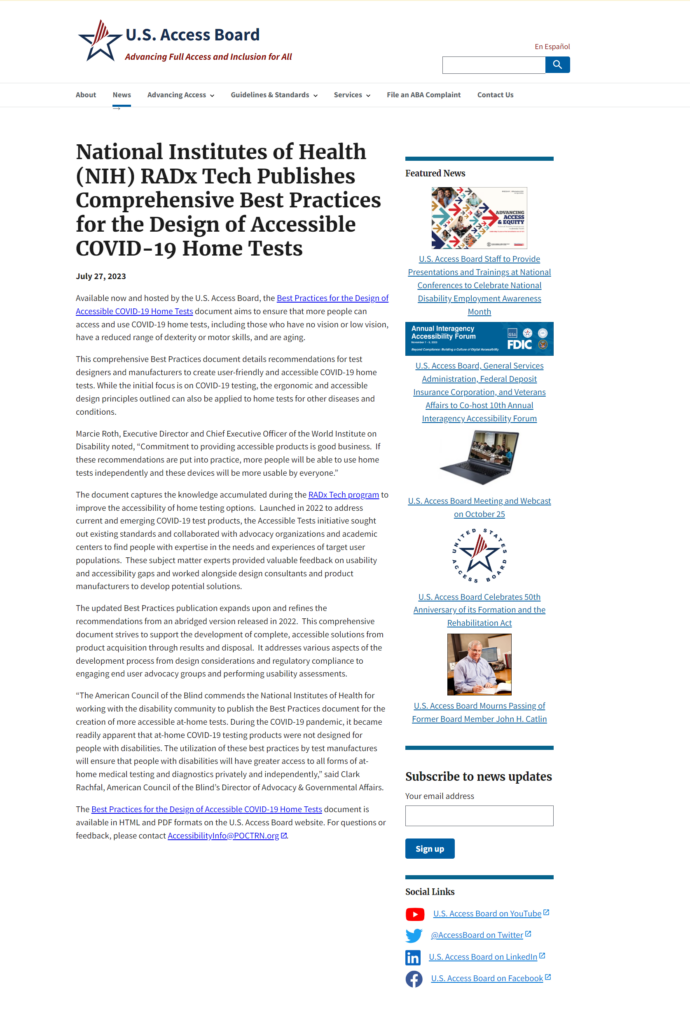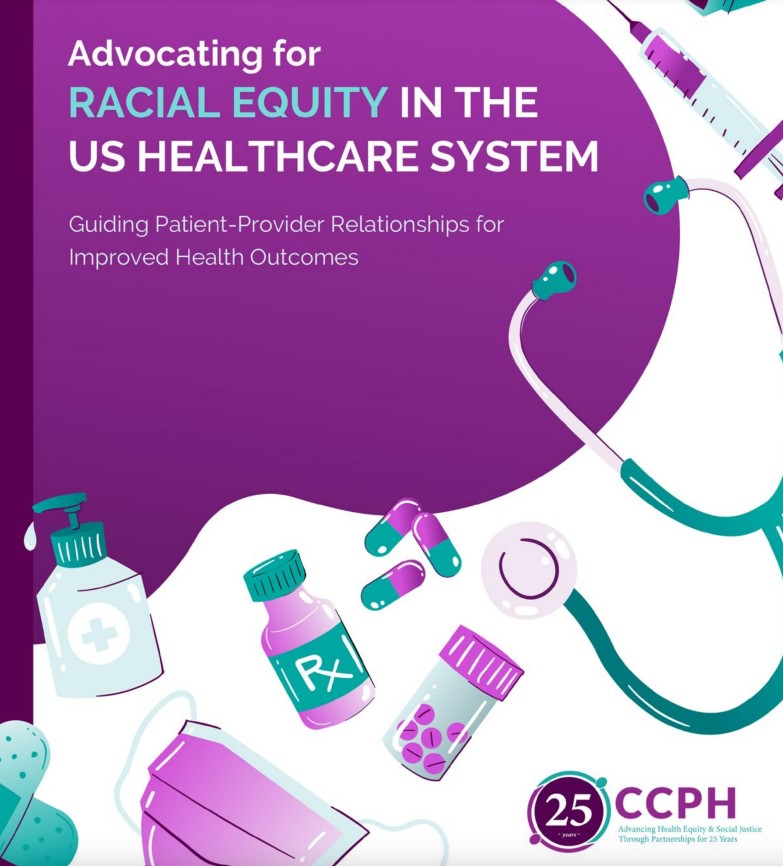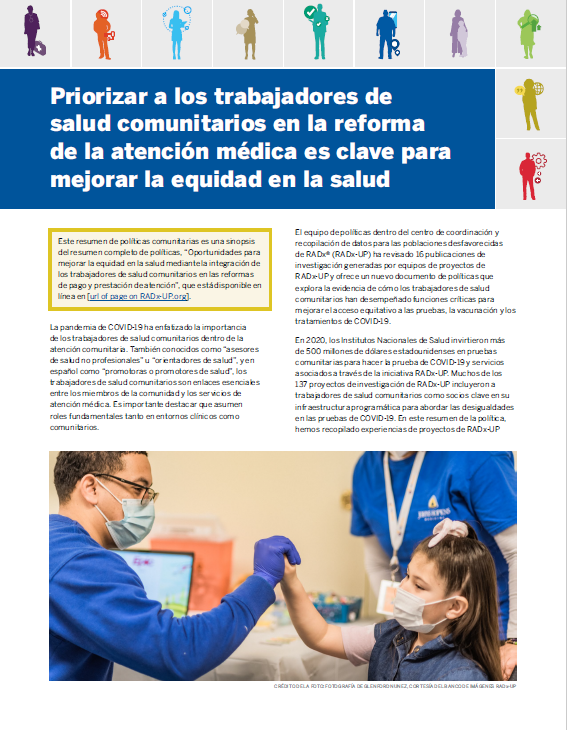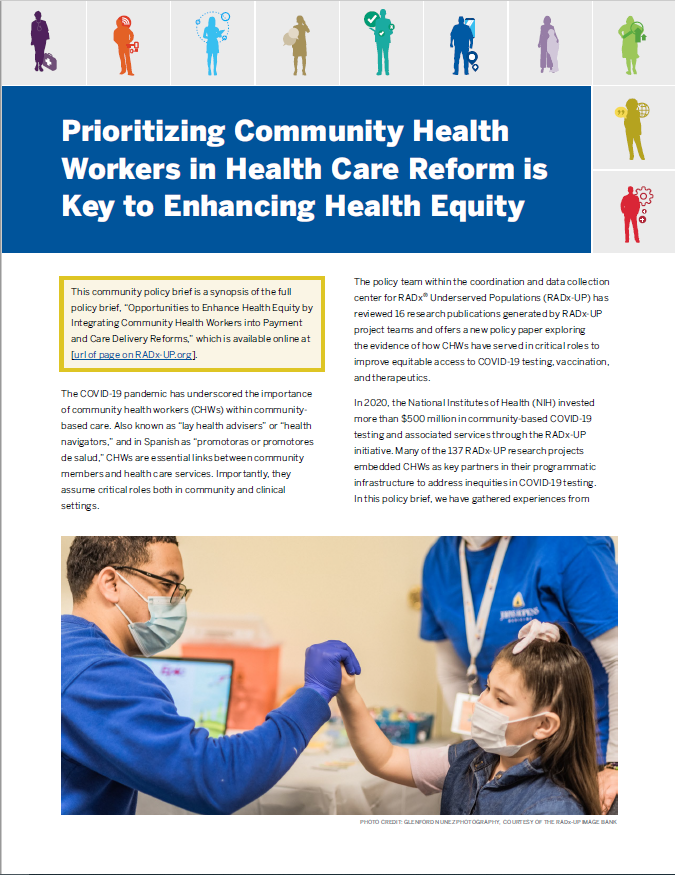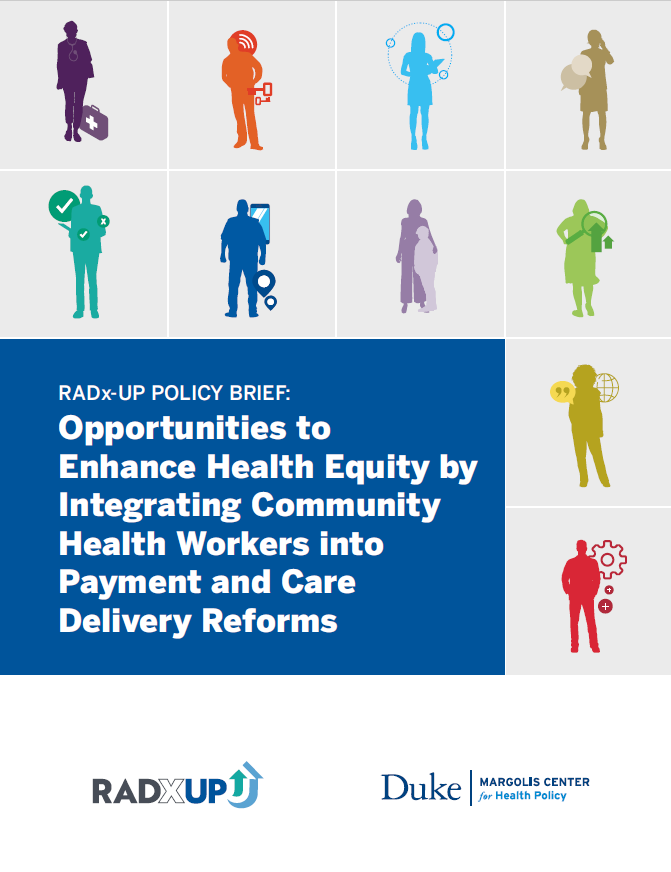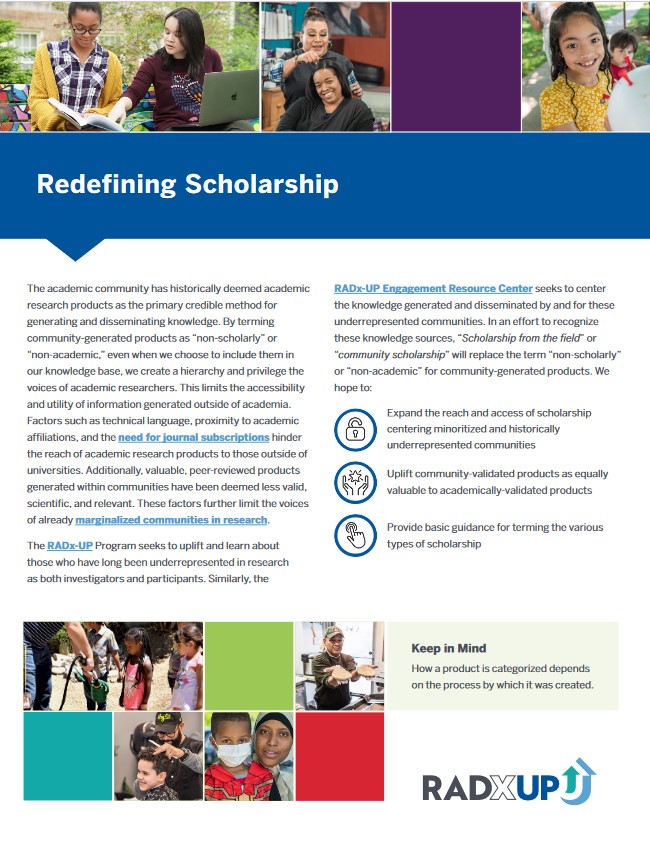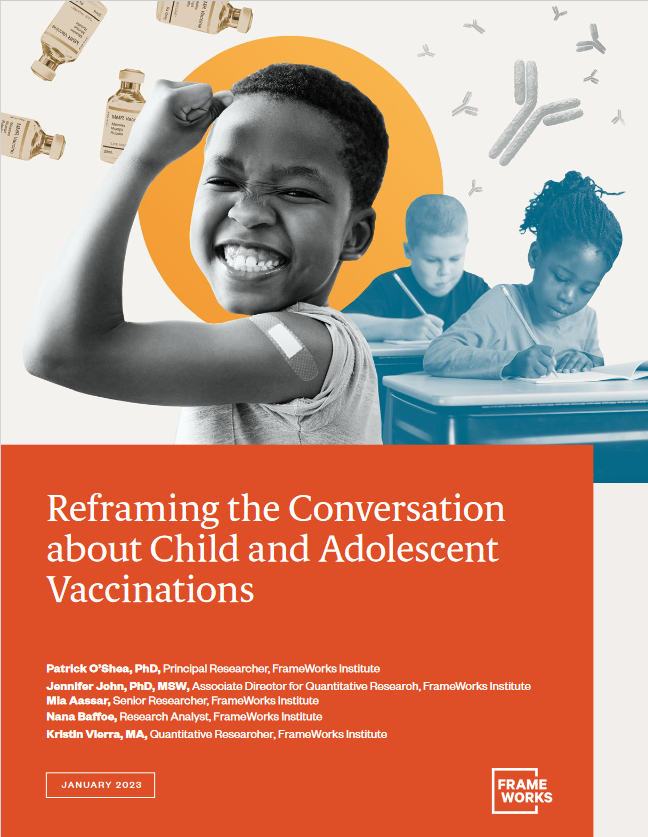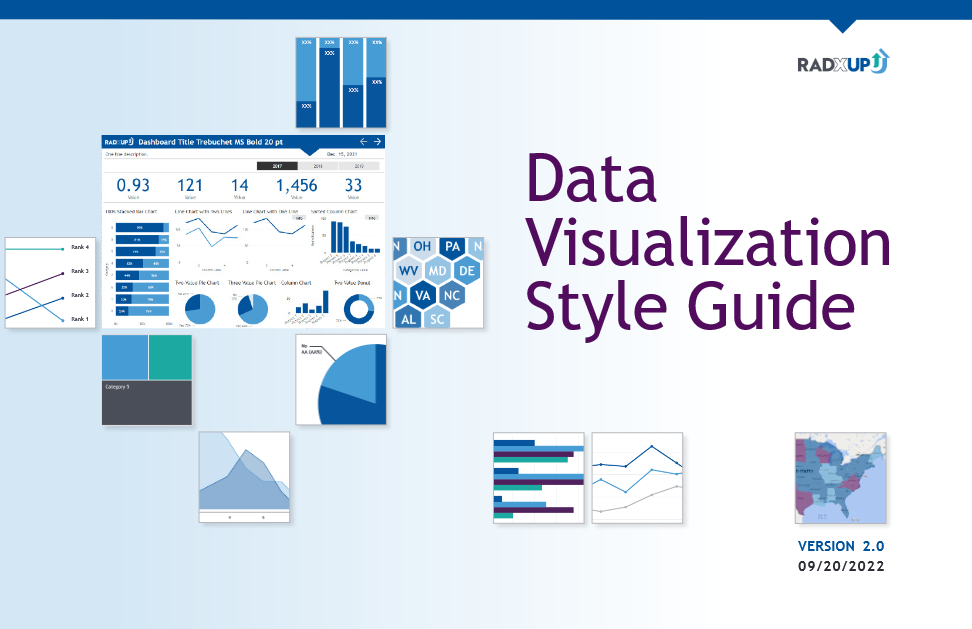Reference Guide
Best Practices for the Design of Accessible COVID-19 Home Tests
Available now and hosted by the U.S. Access Board, the Best Practices for the Design of Accessible COVID-19 Home Tests document aims to ensure that more people can access and use COVID-19 home tests, including those who have no vision or low vision, have a reduced range of dexterity or motor skills, and are aging.
This comprehensive Best Practices document details recommendations for test designers and manufacturers to create user-friendly and accessible COVID-19 home tests. While the initial focus is on COVID-19 testing, the ergonomic and accessible design principles outlined can also be applied to home tests for other diseases and conditions.
